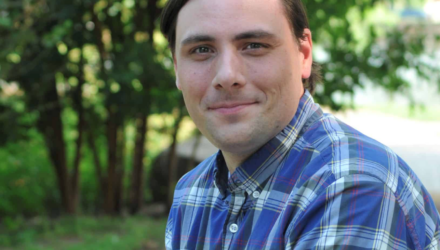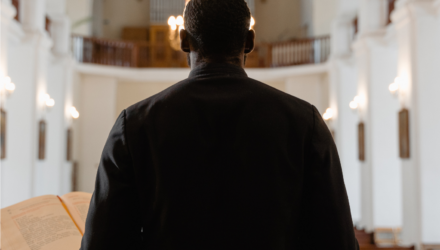
Grace Student Reflects on Go Encounter College Trip to Vietnam
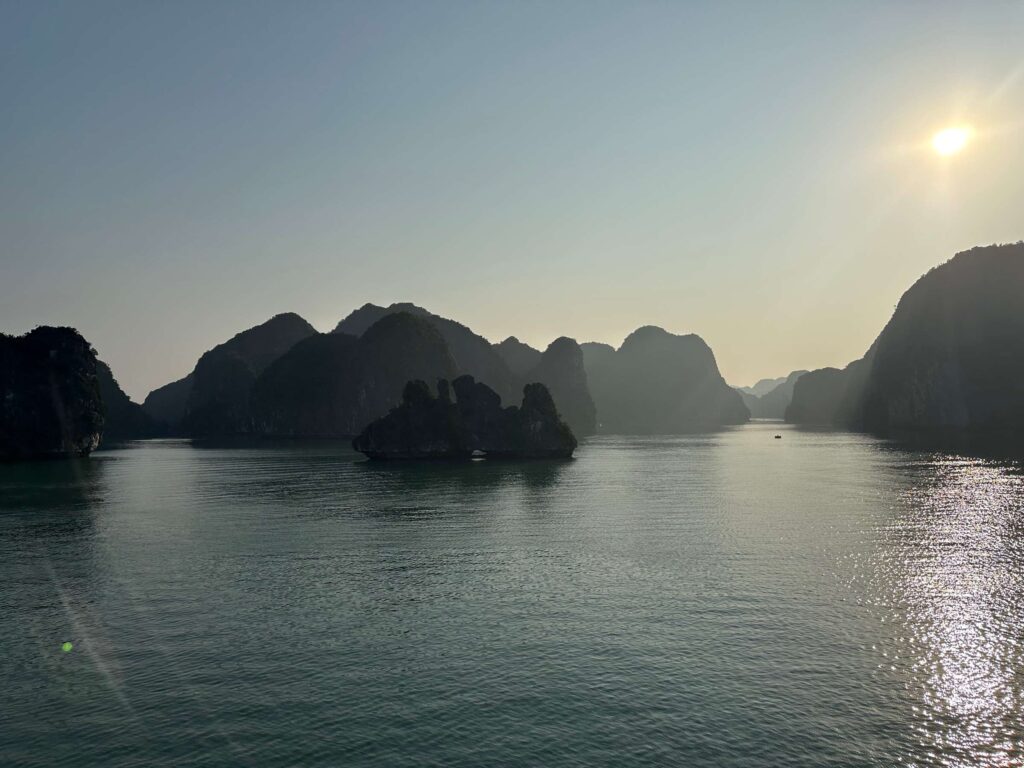
My name is Maria Ignas, and I’m a second-year English major at Grace. This spring break, nine other students and I, along with leaders Matt and Shelley Metzger, crammed our possessions into suitcases and flew halfway around the world to Vietnam. We did so to earn our required credits and complete our Go Encounter trip, Grace’s cross-cultural college trip experience.
I’m the last person you could imagine having the volition to leave Indiana, much less America. An excursion to Walmart provides me with enough stimulation for a week. But I believe travel doesn’t serve only the bold and adventurous, the extroverts and thrill-seekers — something in it beckons the quiet and timid. The afraid, even.
Read on to learn what my Go Encounter trip taught me. Imagine what yours may teach you.
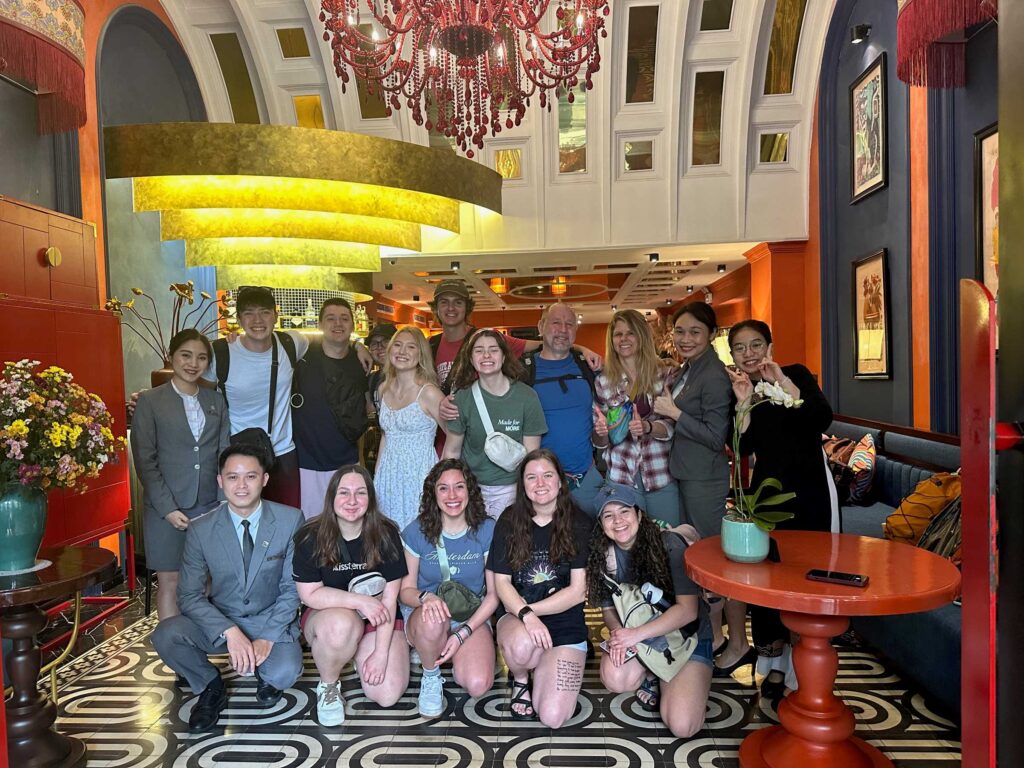
Culture shock in Hanoi, Vietnam
On a cloudy Thursday evening, we departed for O’Hare airport. After flying for 19 hours and subsequently losing all sense of time and direction, we arrived in Hanoi, Vietnam’s capital city. When we stepped outside the airport, we sensed the change in culture like the sudden warmth before a storm. It thrilled us.
Our first major culture shock occurred on our drive to the hotel, where we witnessed what seemed like a chaotic swarm of vehicles swerving, weaving, and jamming around each other, the way you may imagine children playing with Hot Wheels on a mat.
In America, you honk when something’s wrong. In Vietnam, something’s wrong if a vehicle isn’t honking at any given moment. Immersed in the motorized web of disorder, I worried we’d witness an accident or even end up in one.
But we didn’t. The system worked, somehow. Throughout the college trip, our team realized that for Vietnamese driving, the lack of rhyme and reason is the rhyme and reason. I never got over the wonder of vehicles circling me on a busy street when I crossed, like flowing water intersected by a rock.
We grew more acclimated to Vietnamese culture after spending some time in Hanoi. You can eat phở, Vietnamese’s iconic soup, buy a Patagonia crewneck from a factory outlet, purchase fruit from an elderly vendor, get a manicure, purchase bubble tea, admire hand-painted pottery, haggle over the price of resin-encased earrings, pass three “bánh mì,” or Vietnamese sandwich, restaurants, and get some coffee grounds for your family -– all while never leaving the street of your hotel.
Our time in Hanoi confirmed that we had traveled to a country extremely unlike America: an almost polar opposite in government, economy, religion, and even everyday values. So my reaction of stark surprise and even aversion to the driving, the city, the food, or any unfamiliar custom recurred throughout the trip, like a bass note underpinning a melody.
Several experiences with Vietnamese culture on the college trip violated not my moral conscience but my innate sense of what’s normal.
What do you mean the public bathrooms don’t have toilet paper? What do you mean I have to cover my knees and shoulders when visiting a temple? What do you mean that to produce coffee, you give a weasel a colonoscopy?
All these reactions, perhaps ignorant, are hallmarks of someone like me, who has remained in America their whole life. I suspect that no matter how cosmopolitan you consider yourself, they resonate with you, too.
Experiences like trying a different culture’s food or watching a documentary, though perhaps providing an illusion of some vague know-how, represent droplets in an ever-expansive ocean, which is made visible only by traversing actual oceans. The value of my college trip didn’t only lie in learning something. It was realizing that I don’t know many things, and I’ll never learn everything.
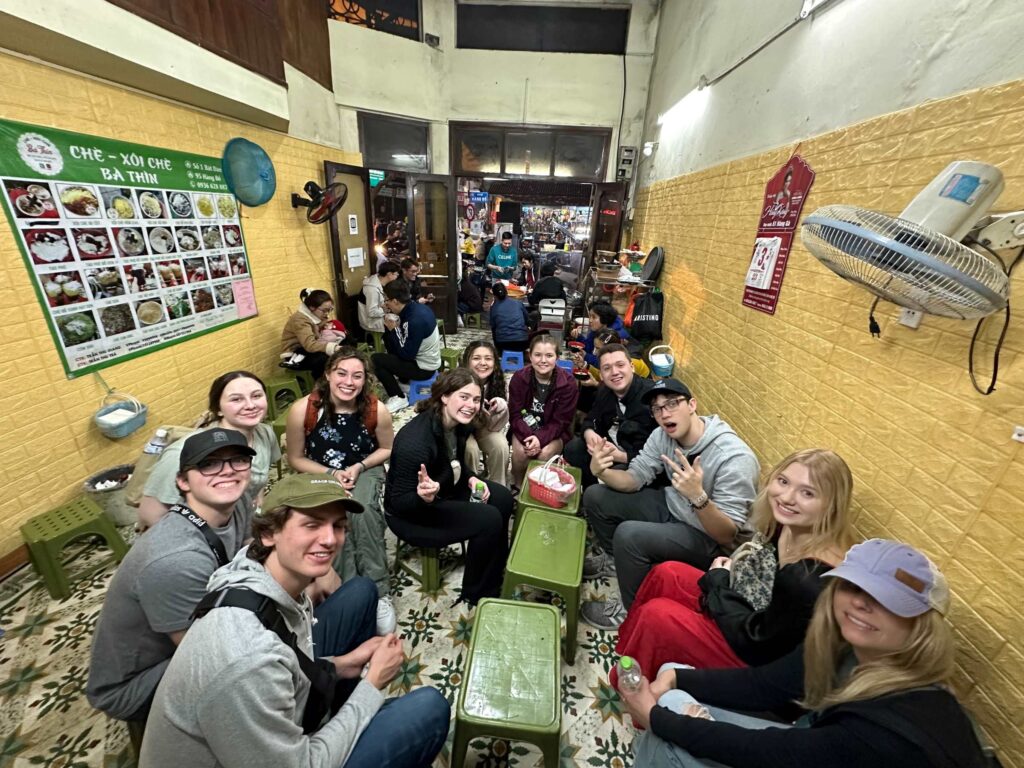
Weasel coffee?
Take the weasel coffee, which our team referred to as “weasel poop coffee,” so named because the farmers extract the beans from coffee cherries partially digested by weasel-like animals. The chemical transformation the bean undergoes enriches its delicious taste.
We instinctively laughed at the idea’s seeming absurdity, yet the history behind the coffee is as rich as the drink itself. While Vietnam was under colonial rule, Dutch coffee companies barred Vietnamese farmers from enjoying the coffee they harvested. One day, workers discovered some coffee beans that had been excreted from the animals. They secretly gathered, sanitized, and brewed the beans, and the coffee tasted much better than the regularly harvested coffee.
We have the Vietnamese working class to thank for a drink that the coffee-sipping world now considers a delicacy. It takes an open mind to taste the coffee and a curious one to learn its full story.
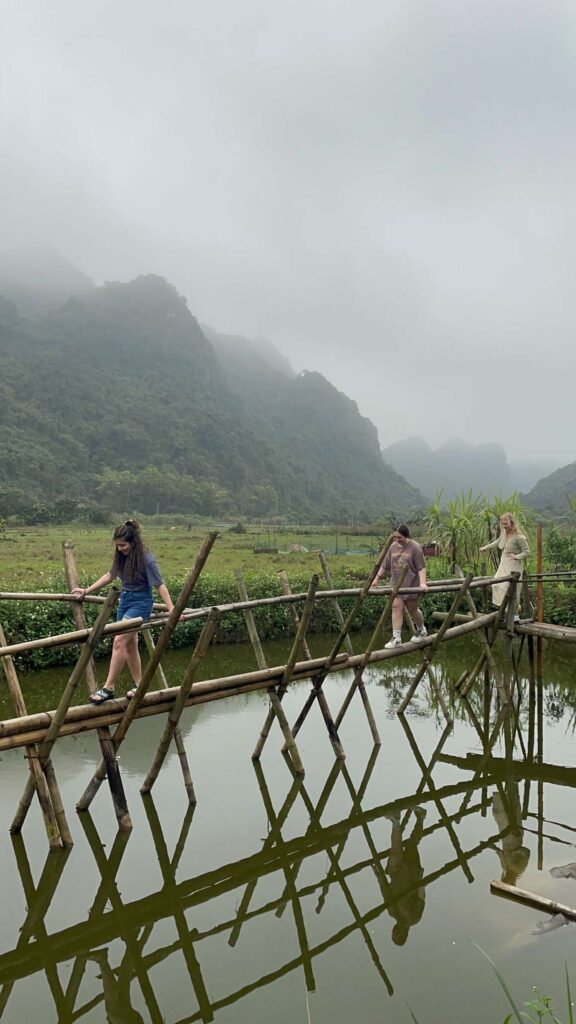
Moped wipeout!
I learned my second lesson in the second half of the college trip. Spending several days in Vietnam had cultivated a spirit of adventure in me, though my teammates could more accurately describe it as the specter of stupidity. We had rented bungalows out in Ninh Binh, a serene town full of windy waters and cloudy cool green hills. Out here, we doused ourselves with bug spray, ate egg sandwiches for breakfast, and communicated with the locals through Google Translate.
One evening, I uncharacteristically asked to ride one of the mopeds we had rented. It was my first time seeing a moped in person, never mind driving it. After learning the controls, I set off, bobbing around on the bumpy dirt road. I was doing pretty well for about seven-and-a-half seconds until I learned just how sensitive the machine was.
The tiniest quiver on the throttle, and the moped lurched forward, rocketing me toward a brick wall. The handles proved too heavy to steer the vehicle, and I hadn’t mastered the lean that would help me turn. In a last-ditch effort not to crash, I squeezed my eyes shut and clamped down as hard as I could on the brakes.
The engine jerked to a stop just before hitting the wall, and the force slammed me into the ground, along with the moped. Behind me, I heard a chorus of alarmed oohs and tried not to cry.
I hadn’t hurt myself too seriously, just a few bruises and sore joints, but I did acquire a second-degree burn on my calf from the exhaust pipe. So much for discovering a new talent.
When I reflect on the accident now, I believe that within an entertaining, embarrassing story emerges another gift of Go Encounter college trips: courage.
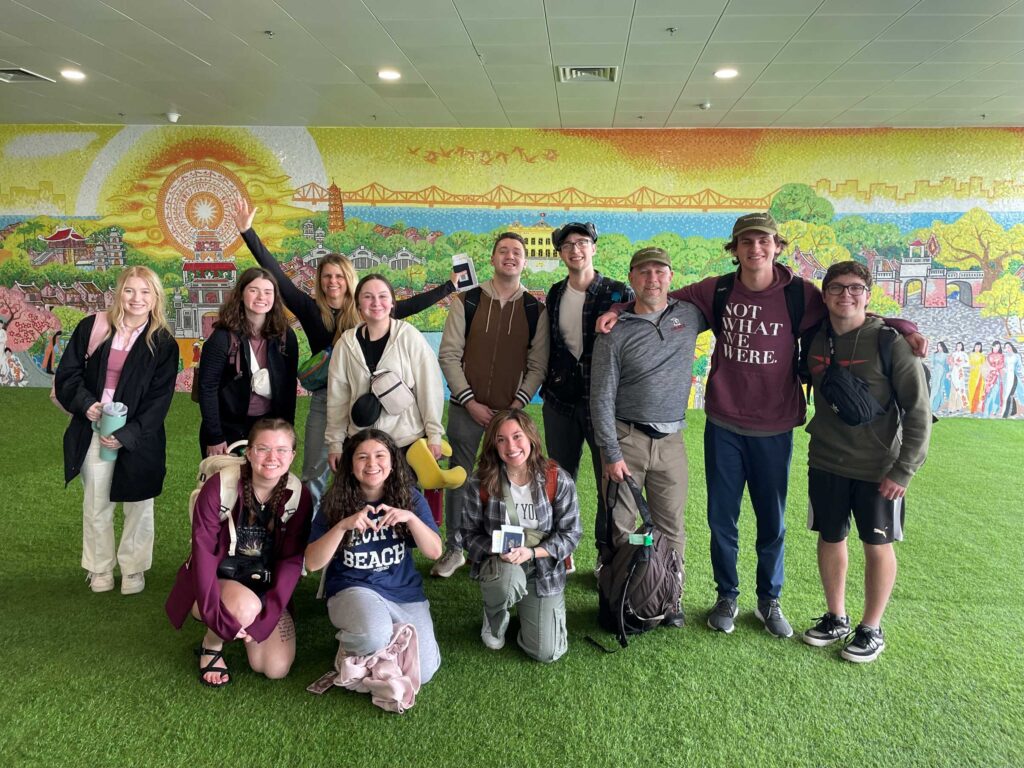
What now?
While I don’t recommend operating a vehicle for the first time in a foreign country, I predict that, sooner or later, you will undoubtedly receive an opportunity to do something you have never done before. It’s even better if failure is likely, and you may embarrass yourself as I did.
But I hope that, like mine, your surroundings are completely unfamiliar, your territory uncharted, and your circumstances terrifying. Where your skill isn’t sufficient to keep you under the radar. Where you must strike out on your own, hiding behind no one.
If you’re like me, you’ll instinctively shrink from the opportunity. Step back and let the ones who are coordinated, competent, and fearless figure it out.
Yet, above all, I hope so fervently that the sound of your own voice volunteering to try shocks you. I hope your boldness swallows up your insecurity.
Even if you mess it all up, humiliating yourself in front of those you wish to impress, you’ll gain so much more than a funny story. The memory will be a reminder that you’re much more courageous than you thought, for you serve the One who measures out a man or woman’s mettle.
To steal my teammates’ words: It’ll be a testimony to the time you didn’t just go, but encountered.
Learn more about Go Encounter Grace College trips, and explore the Institute for Global Studies.
Previous Post

